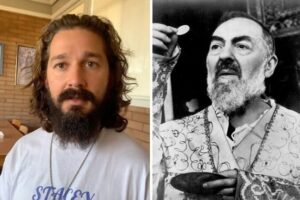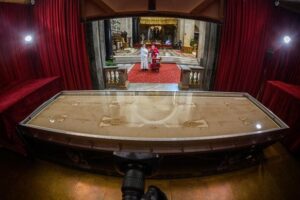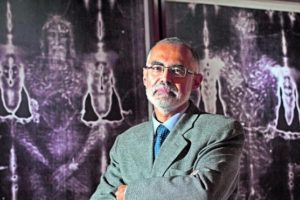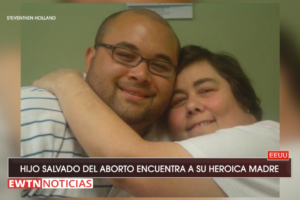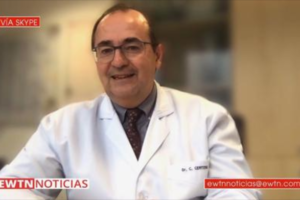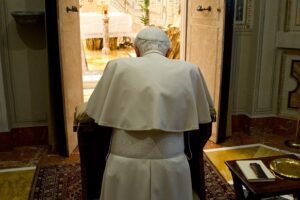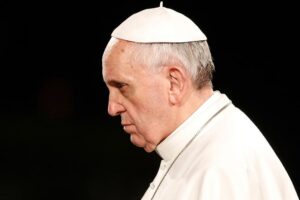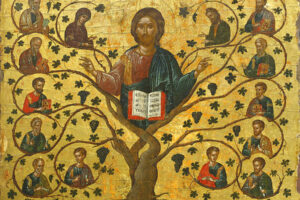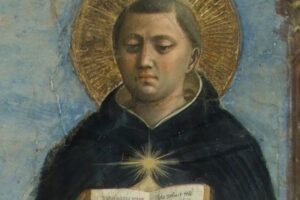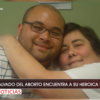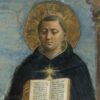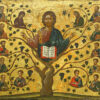John Paul II on War in the Name of God
The volume was recently released in Italy, and will be published by Doubleday for the English-speaking world. The two passages, which recount John Paul II’s reaction to the 9/11 attacks in 2001 and the beginning of the Iraqi war in 2003, are taken from chapter 34: «To Kill in the Name of God?»
* * * On Sept. 11, 2001, the Pope saw the collapse of the Twin Towers on television. The Holy Father was in Castel Gandolfo. The telephone rang, and from the other side he heard the frightened voice of Cardinal Sodano, Vatican secretary of state. He requested that the television be turned on, and was able to see those dramatic images, the collapse of the towers and, within them, so many poor, imprisoned victims. He spent the rest of the afternoon between the chapel and the television, burdened with all his suffering. The following day in the morning, the Pope celebrated Mass.
Afterward, he held a special general audience in St. Peter’s Square. I remember his words: «A dark day in the history of humanity.» And I also remember that, before the prayer, the faithful were asked not to applaud, not to sing. It was a day of mourning. He was worried, extremely worried, fearing that it would not end there; that the attack might unleash an endless spiral of violence. In part, because, from his point of view, the growth of the terrorist plague stemmed, among other reasons, from the state of acute poverty, the lack of possibilities of education and cultural development, which many Arab peoples were experiencing. Therefore, to defeat terrorism, it was necessary at the same time to eliminate the enormous social and economic inequalities between the North and South.
* * * In March 2003, the Pope tried to avoid the second Gulf War. Saturday, March 15. Along with Cardinal Sodano and Archbishop Tauran, the Holy Father received Cardinal Pio Laghi, on his return from the mission in the United States. And Laghi, despite the fact he still did not feel the battle was lost, recounted what he had told the U.S. president. Bush understood perfectly the Pope’s moral reasons, but he could no longer turn back. He had given Saddam Hussein a 48-hour ultimatum. Meanwhile, Cardinal Etchegaray had already given the answer, not too negative, but certainly ambiguous, of the Iraqi leaders: They were willing to collaborate with the United Nations inspectors, but were reluctant about the so-called «weapons of mass destruction.»
By then everything was known that had to be known. Thus, from that meeting on March 15, came the text of the Angelus the following day, with an urgent and determined appeal both to Saddam Hussein as well as to the countries that made up the U.N. Security Council. And, on reading it from his window, the Holy Father wanted to support that last hope that spread across the paths of the world. On three occasions he repeated: «There still is room!» «It is never too late!» However, all this, evidently, did not seem enough to him. He had intuited that the situation was about to precipitate, and that it was moving toward war, with the risk, moreover, that it might be transformed into a war of civilizations or, worse still, a «holy war.» Then he felt the need to say what was in his heart, to offer his personal testimony. He wished to remind that he belonged to the generation of those who had lived through the war and, therefore, also for that reason, he felt the duty to affirm: «Never again war!»
I could see his profile, from where I was in the study, and his right hand which seemed to want to give still greater force to his words. [Translation by ZENIT. Published with permission of Rizzoli International Publishers


